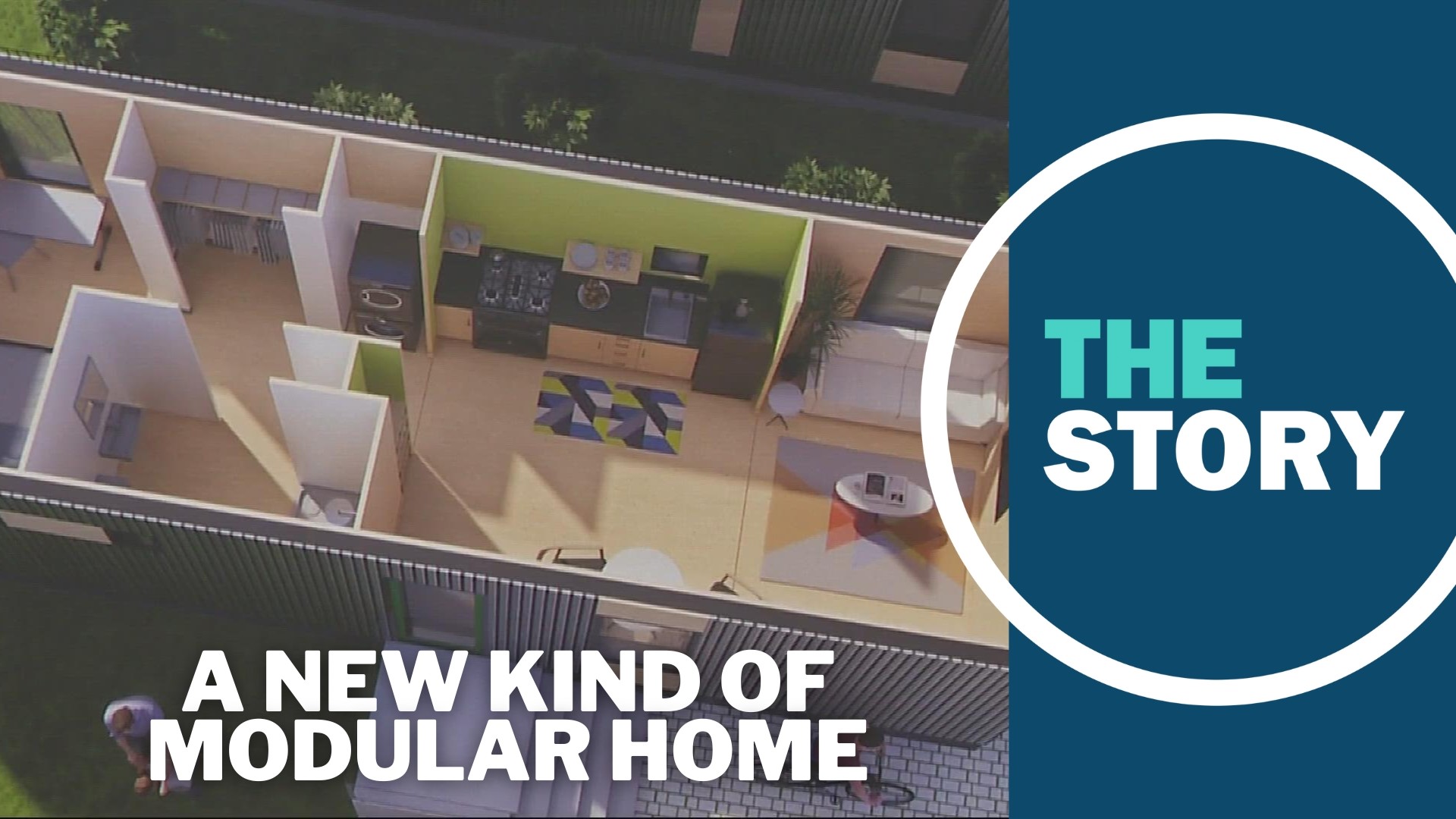PORTLAND, Ore. — Inside a warehouse at the Port of Portland’s Terminal 2 is the result of six weeks’ construction work: a half-dozen prototype modular homes designed to be efficient to build and cost-effective.
“We can do this and we can do this very quickly,” said Ernesto Fonseca, CEO of nonprofit affordable housing group Hacienda Community Development Corp.
“Costs will be reasonable, mass production will reduce that cost even further, and it offers a quick and sweet solution to a crisis that we have, which is the housing crisis,” added Fonseco.
These are prototype modular homes are made in part with Oregon mass timber, a high-tech strong wood laminate. Thus the name of the project, Mass Casitas.
Hacienda CDC is leading the project to make this part of the housing crisis solution, which they believe will be especially useful in rural parts of the state.
Showing off the homes under construction brought out a crowd, including Oregon Gov.Tina Kotek and U.S. Sen. Jeff Merkely. Both were impressed with the concept and the use of Oregon forest products.
They toured the homes, which were made possible thanks to $5 million in startup money from the Oregon legislature.
“It's exciting because this is a seed — this is a seed being planted with the vision of growing a whole forest of affordable homes in our state,” said Merkely.
If the project proves successful, these homes could be mass produced in Oregon with help from a $41 million federal grant to develop and expand Oregon’s emerging mass timber industry.
And that fits right into the goals of Oregon’s new governor, who wants development to ramp up and begin building 36,000 new units of housing in the state annually.
“What I love about it, it's a homegrown product — in this case mass timber out of southern Oregon — and modular, which allows us to be more efficient, quicker to put more homes on the ground,” said Kotek.
The governor has other goals for ending homelessness and keeping people housed. Thursday, she announced specifics of a $130 million plan for that.
“It's more money for outreach, more money for shelters. It's also money for, once we move people into more permanent housing, provide rent assistance until they get stabilized,” said Kotek.
The governor said there is more to come on housing solutions, including these modular homes as a very strong possibility.
“These are amazingly designed homes; they're warm, they're friendly, they don’t feel like a box. And this is going to change what we can do in communities around the state,” said Kotek, who ran on a promise to make homelessness and housing a top priority.
The six prototypes will be donated to nonprofit partners across the state that will select people to live in them. One home will go to the town of Otis, Ore. which suffered huge losses from 2020's Echo Mountain Fire.
Barb and Scott Benedict lost their home and everything else in that fire. They will be gifted one of the Casita homes being built right now for donation to Cascade Relief Team.
“After two and a half years living in a 29-foot travel trailer we're gonna have so much room, it's just amazing to us and fantastic,” said Barb Benedict.
The governor said she thinks the modular homes, currently configured as studios, 2- and 3-bedroom units, could be great for disaster relief and as a piece of the overall housing solution.
Developers don't have a figure yet for what the units will end up costing. We should know more on that after a year of the prototypes being tested in different climates of the state and fine-tuned by developers.

